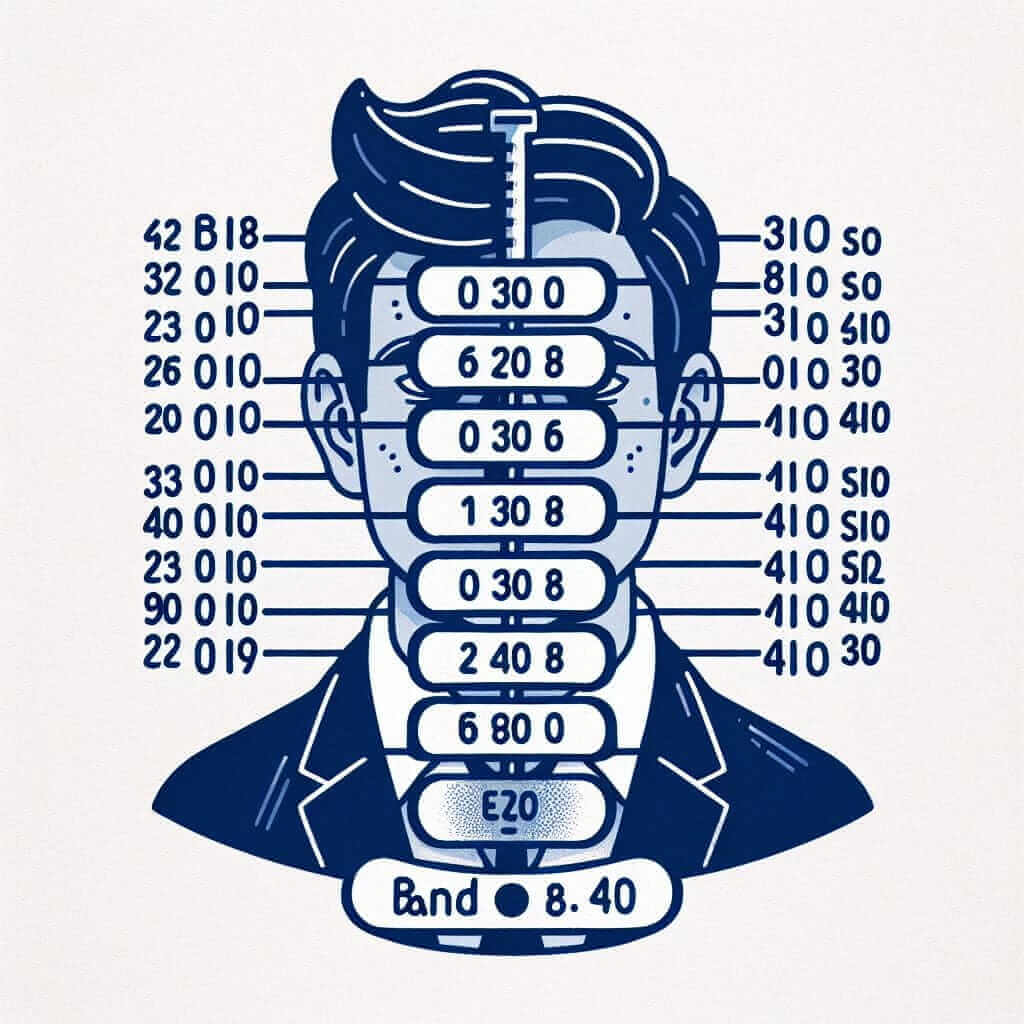As an IELTS instructor with over 20 years of experience, I’ve encountered countless students fixated on predicting their scores. While no magic formula exists, understanding how your IELTS Listening band score is calculated can significantly ease your anxiety and refine your preparation strategy.
Deciphering the IELTS Listening Band Score
The IELTS Listening test consists of 40 questions, each carrying one mark. Your raw score (the number of correct answers) is then converted into a band score ranging from 1 (non-user) to 9 (expert user). This conversion isn’t linear; it follows a pre-determined scale that varies slightly across different test versions.
The Mechanics of Score Conversion
The conversion table, often referred to as the band score calculator, considers the test’s difficulty level. A slightly easier test might require a higher raw score for a particular band, while a more challenging one might have a slightly lower threshold.
For instance, to achieve a band score of 6.0, you might need to answer 23 out of 40 questions correctly on one version, while another version might require 25 correct answers for the same band score. This variability ensures fairness and accuracy in assessing your listening skills.
Illustrative Examples from Real IELTS Tests
Let’s analyze a hypothetical scenario. Imagine two students, John and Emily, both aiming for a band 7.0.
- Scenario 1: John takes the test and answers 32 questions correctly. Looking at the conversion table for that specific test version, 32 correct answers correspond to a band 7.0.
- Scenario 2: Emily takes a different version and also answers 32 questions correctly. However, for this specific test, 32 correct answers translate to a band 6.5.
This example highlights how the conversion table adjusts based on test difficulty, ensuring a fair evaluation of listening proficiency.
 IELTS Listening Score Conversion Table
IELTS Listening Score Conversion Table
Essential Tips for Maximizing Your Score
While obsessing over the conversion table won’t magically boost your score, several strategies can significantly impact your performance:
- Practice Regularly with Authentic Material: Immerse yourself in English audio, focusing on diverse accents and scenarios similar to the test.
- Master the Art of Active Listening: Train your ears to pick out keywords, anticipate information, and focus amidst distractions.
- Develop Effective Note-Taking Techniques: Find a system that works for you, capturing essential details without losing track of the audio.
- Familiarize Yourself with Different Question Types: Analyze past papers to understand the nuances of various question formats and develop appropriate answering strategies.
- Review Your Mistakes Thoroughly: Identify recurring errors and target specific areas for improvement.
Conclusion
Remember, the IELTS Listening test assesses your ability to comprehend and interpret spoken English in various contexts. While understanding the band score calculation provides valuable insight, focusing on consistent practice and targeted skill development will ultimately lead you to your desired score. Stay dedicated, refine your listening skills, and approach the test with confidence!


